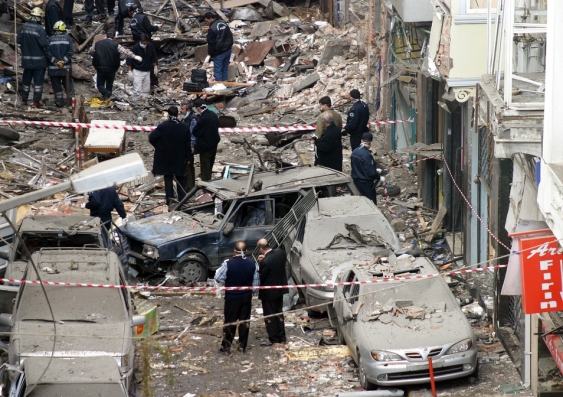Deaths from terrorism in OECD countries increased by 650% last year despite a fall in the number of deaths globally, according to the latest Global Terrorism Index (GTI).
Released on Wednesday by the Institute for Economics and Peace (IEP), the GTI showed that as Islamic State and Boko Haram militants suffered military defeats at home, they committed more attacks abroad, resulting in a record number of countries experiencing their highest levels of terrorism for 16 years.
IEP founder and executive chairman Steve Killelea AM said this year's GTI report highlighted the most complex set of dynamics in global terrorism in the last 16 years.
On Tuesday 22 November, Killelea will present the report's key findings at an exclusive Sydney launch event at the University of New South Wales (UNSW), Unlocking the Global Terrorism Index.
In his only public appearance in Sydney following the report’s release, Killelea will explore the economic impact of terrorism on global and national economies and provide an overview of the current terrorist trends.
His insights will lead into a panel discussion with experts working and researching in this field: Dr Laura J. Shepherd, Associate Professor of International Relations at UNSW Arts & Social Sciences, Dr Nicola McGarrity, Senior Lecturer in Public and Criminal Law at UNSW Law and Director of the Terrorism Law Reform Project in the Gilbert + Tobin Centre of Public Law, and Australian diplomat and human rights lawyer Leanne Smith, who is currently on sabbatical from her position as the Chief of the Policy and Best Practice Service of the United Nations Department of Peacekeeping Operations in New York.
As well as exploring the impact of ISIS, the Taliban, Nigeria’s Islamist insurgency Boko Haram and other organisations, the panel will discuss the report’s implications for Australia and for humanity before engaging in a Q&A with the audience.
Unlocking the Global Terrorism Index is a partnership between UNSW Arts & Social Sciences and the IEP, the world’s leading think tank dedicated to developing metrics to analyse peace and to quantify its economic benefits. As well as its annual Global Terrorism Index, it also releases an annual Global Peace Index which measures peace and violence across 163 countries.
Steve Killelea, an Australian entrepreneur and philanthropist, founded the independent think tank in a bid to foster better understanding of the social and economic factors that develop a more peaceful society.
“We are pleased to be partnering with UNSW for this Unlocking the Global Terrorism Index event. Discussions such as these are increasingly important,” Killelea said. “The recent attacks into the heartland of Western democracies highlight the need for students and the wider community to not only understand the global impact of terrorism, but to also gain insight into terrorist trends and drivers and their implications for Australia and our wider region.”
Professor Shepherd, whose research focuses on gender politics, international relations and critical security studies, said the empowerment of women and their participation in peace and security governance was an important dimension of violence prevention, which included efforts to counter terrorism and violent extremism.
“At this unique event, we will have the chance to explore the findings of the Global Terrorism Index 2016 and discuss the ways in which terrorism, extremism and political violence – and global efforts to counter such violence – have an impact on the lives of women and the ways in which we think about women’s agency,” she said.
What: Unlocking the Global Terrorism IndexWhen: Tuesday 22 November, 5.30–7.30pmWhere: Tyree Room, John Niland Scientia Building, UNSW KensingtonDetails: This event is free, register here


